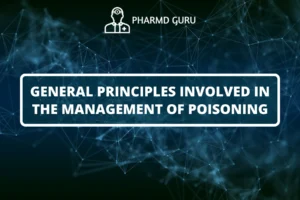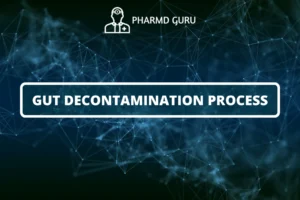Food poisoning is a common occurrence that results from consuming contaminated food or beverages. It can cause a range of symptoms, from mild discomfort to severe illness. Understanding the causes, conducting proper investigations, and implementing general management strategies are essential for preventing and addressing food poisonings effectively. In this article, we will provide an overview of food poisoning, including its causes, investigations, and general management approaches.
SCROLL DOWN TO THE BOTTOM OF THE PAGE FOR ACTUAL NOTES
TABLE OF CONTENTS:
- Introduction
- Causes of Food Poisoning
- Investigations for Food Poisoning
- General Management of Food Poisoning
1. Introduction
Food poisoning, also known as foodborne illness, occurs when we consume food or beverages contaminated with harmful microorganisms, toxins, or chemicals. It can result from improper handling, processing, storage, or cooking of food. Contaminated food can harbor bacteria, viruses, parasites, or toxins that cause illness when ingested. Common symptoms of food poisoning include nausea, vomiting, diarrhea, abdominal pain, and fever.
2. Causes of Food Poisoning
Food poisoning can have various causes, including:
- Bacterial Contamination: Pathogenic bacteria such as Salmonella, Escherichia coli (E. coli), Campylobacter, and Listeria monocytogenes are common culprits of food poisoning. These bacteria can contaminate food through poor hygiene practices, inadequate cooking, or cross-contamination.
- Viral Infections: Viruses like norovirus, rotavirus, and hepatitis A can spread through contaminated food or water, leading to foodborne illnesses.
- Parasitic Infections: Parasites such as Cryptosporidium, Giardia, and Trichinella can contaminate food, particularly raw or undercooked meats, seafood, and fruits and vegetables.
- Toxic Substances: Certain foods, such as certain types of mushrooms, can contain toxins that cause food poisoning when consumed.
3. Investigations for Food Poisoning
When an outbreak or individual case of food poisoning occurs, investigations are crucial for identifying the cause and preventing further spread. The following investigations are typically conducted:
- Patient Interviews: Gathering information about the patient’s symptoms, timeline, and food consumption helps identify potential sources of contamination.
- Food History: Collecting information about the foods consumed, including specific brands, preparation methods, and locations of meals, aids in pinpointing the potential contaminated food item.
- Laboratory Testing: Collecting and analyzing food samples, as well as patient stool samples, can help identify the causative agent responsible for the food poisoning. Tests may include bacterial cultures, polymerase chain reaction (PCR) assays, and toxin detection.
4. General Management of Food Poisoning
The general management of food poisoning focuses on relieving symptoms, preventing complications, and promoting recovery. The following measures are commonly implemented:
- Hydration: Adequate hydration is essential to compensate for fluid loss due to vomiting and diarrhea. Oral rehydration solutions or intravenous fluids may be administered if necessary.
- Symptomatic Treatment: Medications to alleviate nausea, vomiting, and diarrhea may be prescribed to provide relief.
- Rest and Recovery: Resting and allowing the body time to recover is crucial. Avoiding solid foods and gradually reintroducing them as tolerated is recommended.
- Antibiotics or Antimicrobial Therapy: In some cases, antibiotics or specific antimicrobial drugs may be prescribed if a bacterial infection is confirmed.
- Prevention of Spread: If a foodborne illness outbreak is identified, public health authorities may implement measures to prevent further spread, such as issuing recalls or advisories, and improving food handling and processing practices.
ACTUAL NOTES




